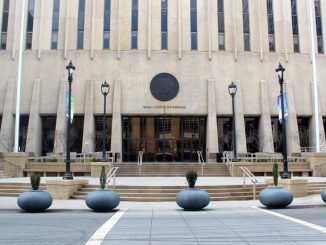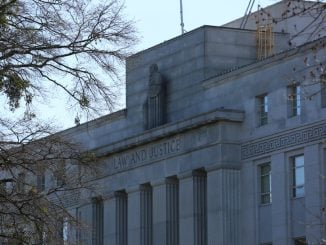
RALEIGH — The North Carolina Supreme Court has granted a discretionary review of the long-running education case often referred to as “Leandro.”
The decision references the September request by state legislative leaders and states, “The Court hereby allows the petition solely on the question of whether the trial court lacked subject matter jurisdiction to enter its order of 17 April 2023.”
The order for discretionary review consistently refers to the case as Hoke III instead of Leandro, the name frequently associated with one of the original plaintiffs of the 29-year-old lawsuit originally brought by five low-wealth school districts.
The vote on the order to review the case was split down party lines in which all five Republican members voted in favor. Democrats Anita Earls and Allison Riggs, who were former business and law partners at the Southern Coalition for Social Justice before joining the court, dissented.
Riggs was only recently appointed to the court by Democratic Gov. Roy Cooper to fill the vacancy of former Associate Justice Michael Morgan, who resigned ahead of the end of his term in order to run for governor. Cooper had only just appointed Riggs to the Court of Appeals in late December 2022.
In her dissent, Earls said the legislative motion to bypass the Court of Appeals should be denied because it is “substantively hollow and procedurally improper,” while accusing them of wanting a “do-over.” She also took aim at the idea the case should apply statewide instead of being jurisdictionally limited to Hoke County where the case originated and was litigated until the past few years.
“The premise of the dissent is that this Court already ‘resolved the question of subject-matter jurisdiction in [Hoke County III].’ The dissent is wrong,” Associate Justice Phil Berger Jr., along with fellow Associate Justices Richard Dietz and Trey Allen, wrote in response to the dissent by Earls and Riggs.
Berger went on to cite the example of Earls serving as the lawyer for the plaintiffs in adding the Charlotte-Mecklenburg Schools to the case.
“The lawsuit, at that point, focused on educational deficiencies in rural counties in the eastern part of our State,” wrote Berger. “The Penn Intervenors sought intervention to “enforce their constitutional rights to a sound basic education” against the Charlotte-Mecklenburg School System. Core to their rationale for intervention was that every public school district faces its own unique educational challenges and groups of students or school districts in one area of our state are ill-suited to address the educational deficiencies in others.”
Berger continued, writing, “This raises questions that our Court has not yet addressed: If public school students or local school boards who are not parties to this case believe the remedial order does not sufficiently address the educational failure in their districts, are they bound by the remedial order? If so, how were their rights adjudicated without their presence in the suit—an elementary principle of jurisdictional law.”
“My dissenting colleague laments that subject matter is now being addressed because it will cause various harms to judicial integrity and “snuff out legal finality.” Once again, we endure ad nauseum these fanciful protestations,” Berger wrote in response to Earls and Riggs.
“But it is black letter law that courts cannot ignore potential defects in subject matter jurisdiction,” continued Berger. “Even if we again failed to address jurisdictional concerns, these issues could be raised later in a collateral attack on the trial court’s order, causing tremendous chaos if steps are already being taken to execute the novel relief in the remedial order.”
Citing the formerly Democrat-controlled Supreme Court’s ruling in the Leandro case, Berger noted the previous court “rushed to complete its earlier opinion in this incredibly complex, novel case (one that has spanned decades) so that it could be released in November of last year.”
The previous court had fast-tracked the case, dropping its 4-3 ruling just days before the majority members were voted out in the November 2022 midterm elections.
That ruling circumvented the legislature’s role in appropriations under the state constitution in ordering the funding transfer from the state’s coffers by three other state agencies.
The current amount of the order resides at $677.8 million, but that figure has continually been revised over the past three years. The original funding amount suggested by the Comprehensive Remedial Report produced by WestEd had called for $8.29 billion.
The prior court’s decision, penned by former Associate Justice Robin Hudson, admitted its order was “extraordinary” because it “exercises powers at the outer bounds of the reach of the judiciary and encroaches into the traditional responsibilities of our coequal branches of government.”
The three dissenting justices rebuked the funding decision, with Berger calling it a power grab to determine who decides education policy and how that policy is funded as well as an “arbitrary usurpation of purely legislative power by four justices.”


